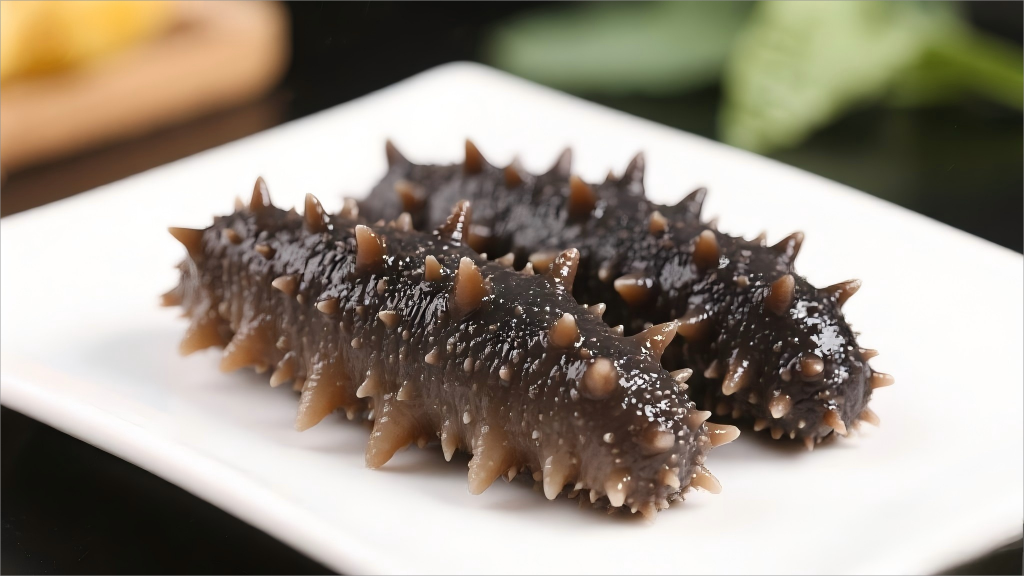Imagine if the cure for cancer wasn’t hidden in a high-tech lab but floating at the bottom of the ocean.
That’s exactly what researchers at the University of Mississippi discovered when they found that a sugar compound in sea cucumbers—yes, those squishy, unassuming sea creatures—could block an enzyme responsible for cancer spread.

For years, scientists have been searching for ways to stop cancer from metastasizing (the process where cancer cells break away and invade other parts of the body). And now, nature might have handed us the answer on a silver platter—or, more accurately, in a sea cucumber’s slimy exterior.
Why This Matters for Millennials
Cancer doesn’t discriminate by age. Many of us have watched loved ones battle this disease, or we’ve faced the terrifying possibility ourselves. The idea that something as simple as a marine sugar compound could be a game-changer is mind-blowing—and it’s a reminder that the future of medicine might be more natural, sustainable, and unexpected than we ever imagined.
So, let’s break down why this discovery is a big freaking deal—and what it could mean for the future of cancer treatment.
1. The Hidden Power of Glycans (And Why Cancer Hacks Them)
"Our cells are covered in tiny forests of sugars—and cancer is the invasive species tearing them down."
Every cell in our body is coated with glycans, tiny sugar molecules that act like cellular ID cards. They help cells communicate, signal threats, and keep our immune system in check. But cancer? Cancer is a master manipulator.
The Problem: Cancer hijacks enzymes like Sulf-2, which rewrites the glycan code, making it easier for tumors to spread.
The Solution: The sea cucumber’s fucosylated chondroitin sulfate blocks Sulf-2, essentially cutting off cancer’s escape route.
Actionable Takeaway: While we wait for this research to develop into treatments, supporting marine conservation (and sustainable harvesting) could be key to unlocking more of the ocean’s medical secrets.
2. No Blood Clotting Risks = A Safer Future Treatment
"Most Sulf-2 inhibitors come with a dangerous side effect: uncontrolled bleeding. This one doesn’t."
One of the biggest hurdles in cancer drug development is balancing effectiveness with safety. Many existing Sulf-2 inhibitors interfere with blood clotting, which can lead to life-threatening bleeding.
But the sea cucumber compound?
Zero clotting interference (meaning no added risk for patients).
Naturally derived, reducing the chance of harmful side effects.
Actionable Takeaway: If you’re passionate about health innovation, keep an eye on marine-based medicine. The ocean is a treasure trove of untapped potential.
3. Why Marine Medicine Could Be the Future of Cancer Treatment
"Forget pig intestines—the next big drug might come from the sea."
Historically, many carbohydrate-based drugs have been sourced from pigs and cows, which comes with risks like virus transmission and ethical concerns.
But sea cucumbers?
Cleaner source (no risk of mammalian viruses).
More sustainable (if synthesized properly).
Easier to modify for mass production.
Actionable Takeaway: Supporting marine biology research and sustainable ocean harvesting could accelerate breakthroughs like this.
The Next Steps: From Sea Cucumbers to Cancer Treatment
Right now, the biggest challenge is scaling production. Scientists can’t just harvest millions of sea cucumbers—they need to synthesize the compound in a lab.
But once they do?
Animal testing will begin.
Human trials could follow.
A new class of anti-metastatic drugs might emerge.
"The ocean isn’t just a source of food—it’s a pharmacy waiting to be explored."
Final Thought: What If Nature Already Had the Answers?
We spend billions on high-tech cancer research, but sometimes, the most powerful solutions are hiding in plain sight—or at the bottom of the ocean.
This discovery is a reminder that nature is the original scientist, and if we listen closely, it might just hand us the cure we’ve been searching for.
So, what do you think?
Would you try a sea cucumber-derived cancer treatment if it became available?
How can we better support marine research for medical breakthroughs?
Drop your thoughts below—let’s get this conversation going!
Authoritative Sources:
"Fucosylated chondroitin sulfate from sea cucumber inhibits tumor metastasis" - Glycobiology Journal
"The role of Sulf-2 in cancer progression" - National Cancer Institute
"Marine natural products in drug discovery" - NIH Research






















